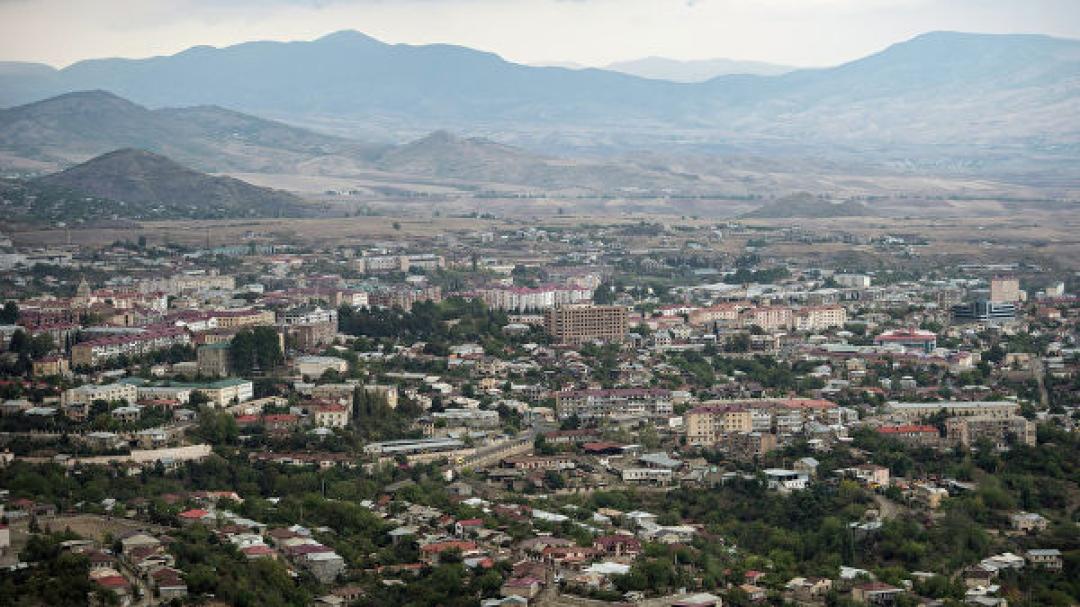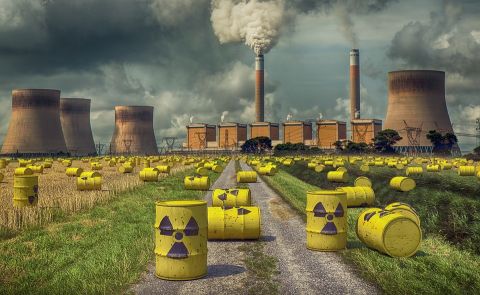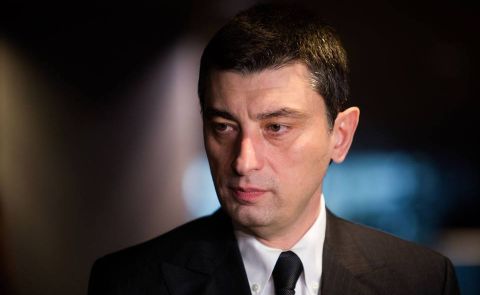
Pashinyan speaks on the settlement of the Karabakh conflict

On 26 January, the Armenian Prime Minister Nikol Pashinyan held a press conference in the town of Kapan, where he spoke on the resolution of the Nagorno-Karabakh conflict, reported commonspace.eu.
He spoke about what he called "the Karabakh legacy" inherited from the previous Armenian leader Serzh Sargsyan. Pashinyan said that the opposition was often accusing him of squandering the Sargsyan legacy in terms of Karabakh. He said he wanted those contesting the forthcoming presidential elections in Karabakh to publicly declare if they supported this legacy or not.
He further elaborated that Sargsyan left three main paragraphs on the negotiating table, namely:
1) a referendum has to be conducted to determine the final legal status of Nagorno-Karabakh. The vote will be an expression of the will of the entire population of Nagorno-Karabakh under the auspices of the UN or OSCE, within the time frame agreed by the parties, which will be legally binding and will comply with the norms and principles of international law. Full regulation of political, trade, economic and humanitarian ties in the region, restoration of good-neighbourly cooperation, ensuring complete stability in the South Caucasus region;
2) that the Armenian settlers should leave the five districts (Aghdam, Fizuli, Jabrail, Zangilan and Gubaldi) of Nagorno-Karabakh and that all displaced persons, with the assistance of the international community, will return to these territories. Azerbaijani civilian authorities will enter these territories after the deployment of international peacekeeping forces and the withdrawal of armed forces now located in these areas. International peacekeeping forces will be deployed along the administrative borders, except for the sections that form part of the Qelbajar and Lachin regions;
3) simultaneously with the adoption of the above measures, until the final solution is found, Nagorno-Karabakh should be granted temporary status, which will guarantee the organization of daily life in it.
Pashinyan then spoke on the current state of the negotiations of the conflict. “We are ready for constructive, normal work, as much as we understand how difficult a work that is,” he said. “I have told my colleagues, that now we – the President of Azerbaijan, the [de facto] President of the Republic of Nagorno-Karabakh and the Prime Minister of the Republic of Armenia – are personally bearing the responsibility of the future of peace and stability in the region. This is a personal responsibility, and to some extent also a common responsibility, and bearing this responsibility and [dealing] with it with honour is a very difficult task,” he added.
Asked to elaborate on the Karabakh talks, the Pashinyan emphasized that there is no secrecy around the negotiations. “It is described and termed in my speech at the 2019 March joint Security Council session of Armenia and Nagorno-Karabakh in Stepanakert,” he said. “In that speech I had outlined our circle of discussions in the negotiations process. It is this circle that we are now talking about. Currently there is no paper on the table for us to discuss. And we must work together to approach a more specific, more substantiated discussion phase,” he added.
He said this period of time must be used to efficiently to approach that phase, but at the same time noted that it hasn’t been used effectively due to certain objective and subjective reasons. He said that the most important reason was that Azerbaijan hasn’t appropriately responded to his statement that "any option of settlement of the Karabakh conflict has to be acceptable for the people of Armenia, the people of Nagorno-Karabakh and the people of Azerbaijan.” “This, if we were to express on a conceptual level today, is the biggest obstacle to the resolution process. But our stance is constructive, we find that the Karabakh issue must be resolved, resolved within the circle of concept and principles that I had said in Stepanakert, within the circle of the logic of my speeches at the UN, and within the framework of the principles that we have declared previously,” he concluded.
Pashinyan also commented on the possibilities of meeting Aliyev at the Munich Security Conference, which is scheduled for 14-16 February. “There is no agreement to meet at this moment. I can’t rule out a meeting, because they are in the discussion phase. And generally, if I am not mistaken, I haven’t said that on 20 December at the CIS summit in St. Petersburg, we talked there. I find these types of contacts to be useful,” he said.
Pashinyan’s statements on the settlement of the Nagorno-Karabakh issue, sparked negative reactions from Karabakh political elites.
Former de facto Prime Minister of Nagorno- Karabakh Araik Harutyunyan said in particular that such an option to resolve the conflict is “unacceptable.” According to him, immediately after the elections in Karabakh, work will begin on the development of all adjacent occupied regions and their settlement.
Ashot Gulyan, speaker of the Karabakh parliament also spoke out in defence of the thesis “we will not return an inch of land”. According to him, the so-called independence of Nagorno-Karabakh is the minimum goal, and the main task is to unite with Armenia. Ashot Gulyan added that one cannot even discuss the issue of returning territories to Azerbaijan.
The only opposition candidate in the election of the new de facto President of Nagorno-Karabakh, Hayk Khanumyan, also said that the return of lands to Azerbaijan cannot be negotiated.
Another candidate, Ruslan Israelyan, joined the discussions, who noted that all occupied territories “belong to the people of Nagorno-Karabakh." According to him, the negotiations should not be based on mutual concessions, but "recognition by Azerbaijan of the independence of Nagorno-Karabakh with adjacent territories.”
There had been no official reactions from Azerbaijan regarding Pashinyan’s statements, only an opinion from the Azerbaijani pro-government news outlet haqqin.az. “Pashinyan shouldn’t speak any more about negotiations. The negotiations should be considered finished for Azerbaijan, as well. After all, if the return of territories is off the table, then why is Azerbaijan wasting time on this pointless process?” read the opinion (quote taken from Eurasianet).
See Also


Russia Begins 24/7 Radiation Monitoring in Dagestan After Iranian Nuclear Incident

How Do Caucasus States React to Israel-Iran War?

Weekly Brief on Military Situation in the South Caucasus (9–15 June 2025)

Former Georgian PM Gakharia to Face Prosecution

